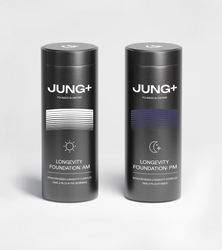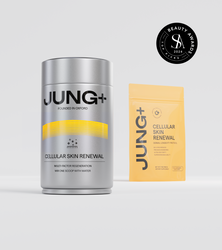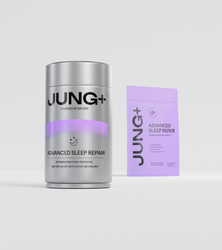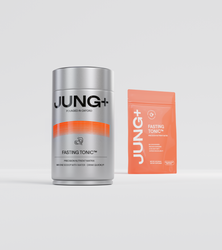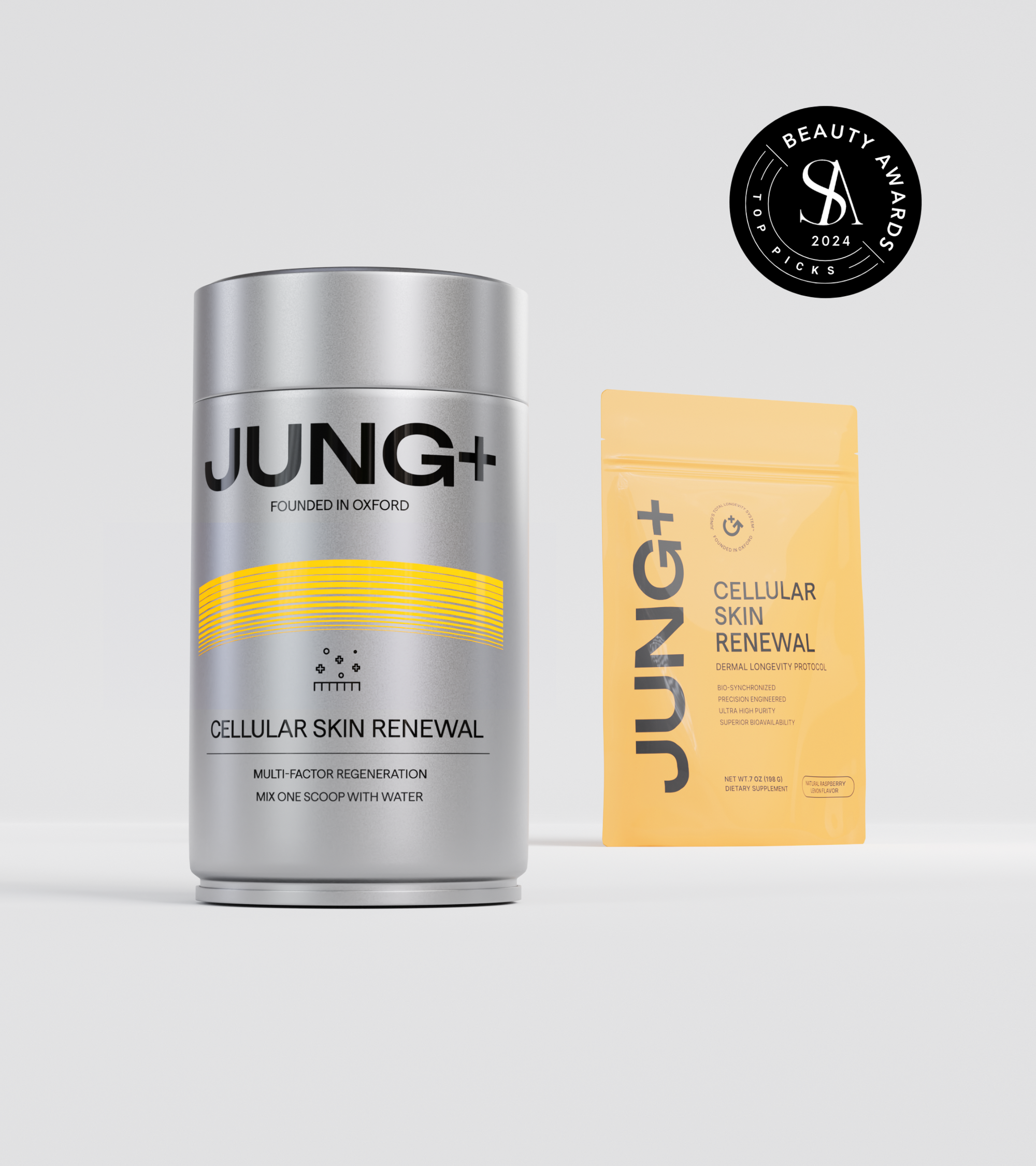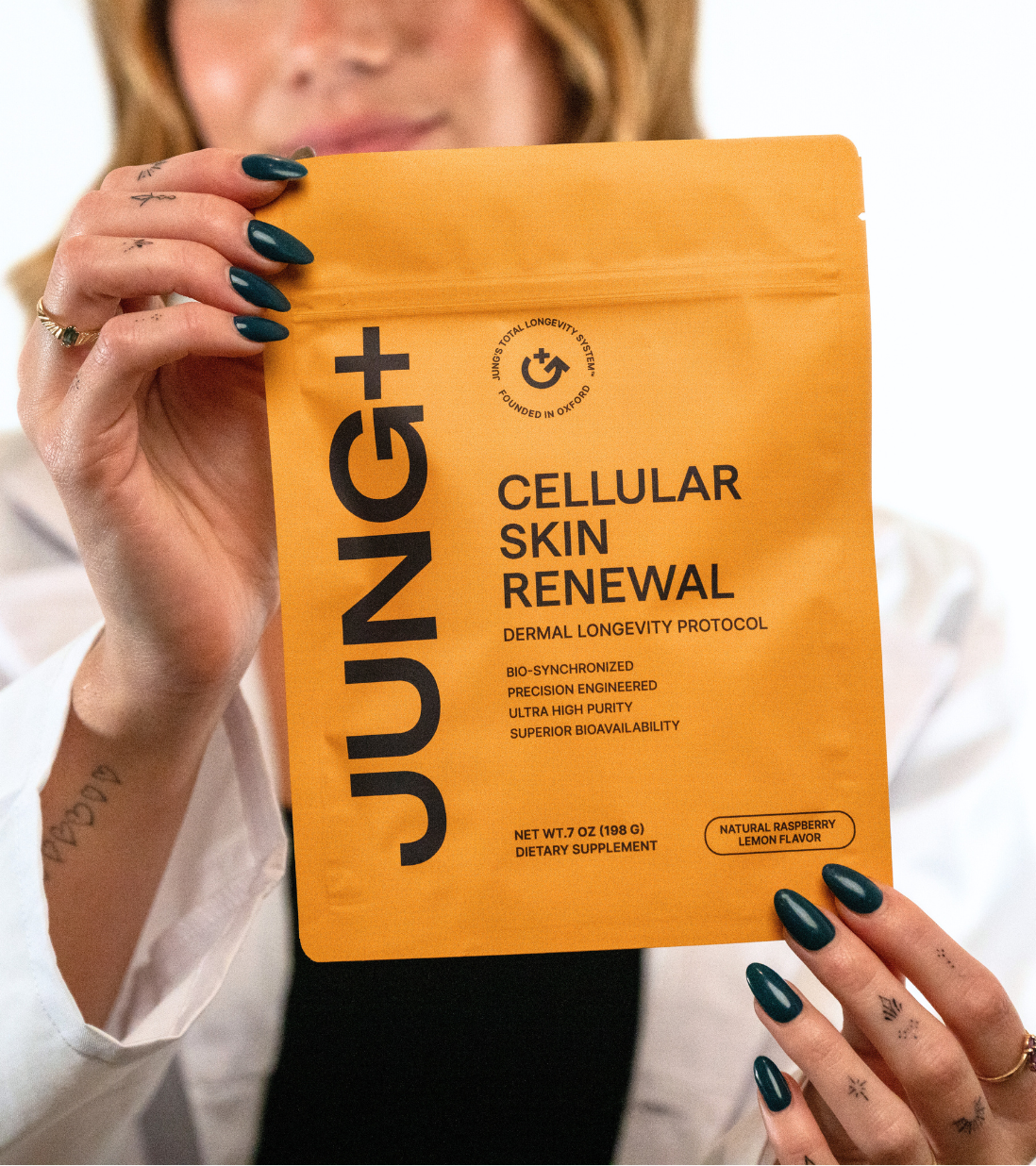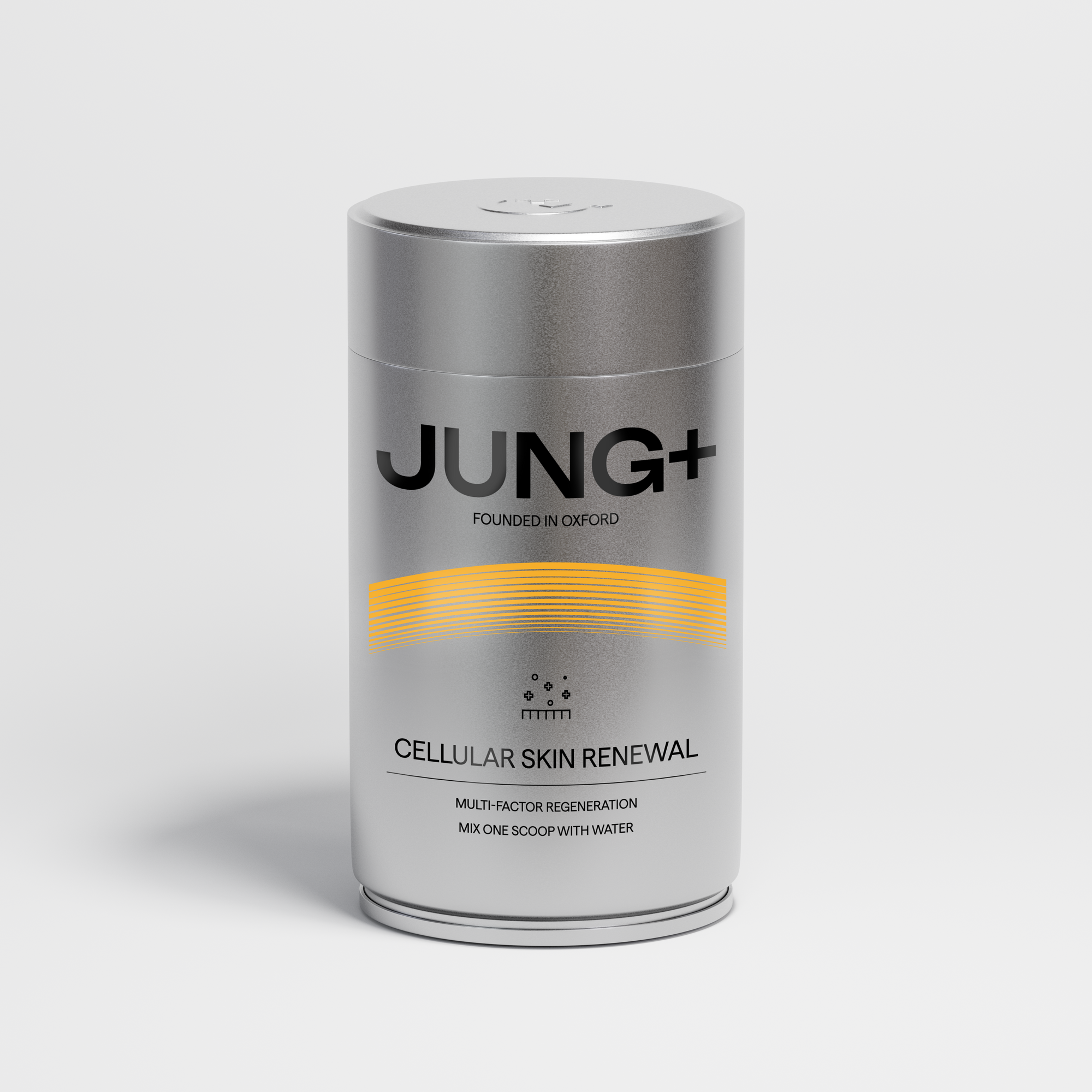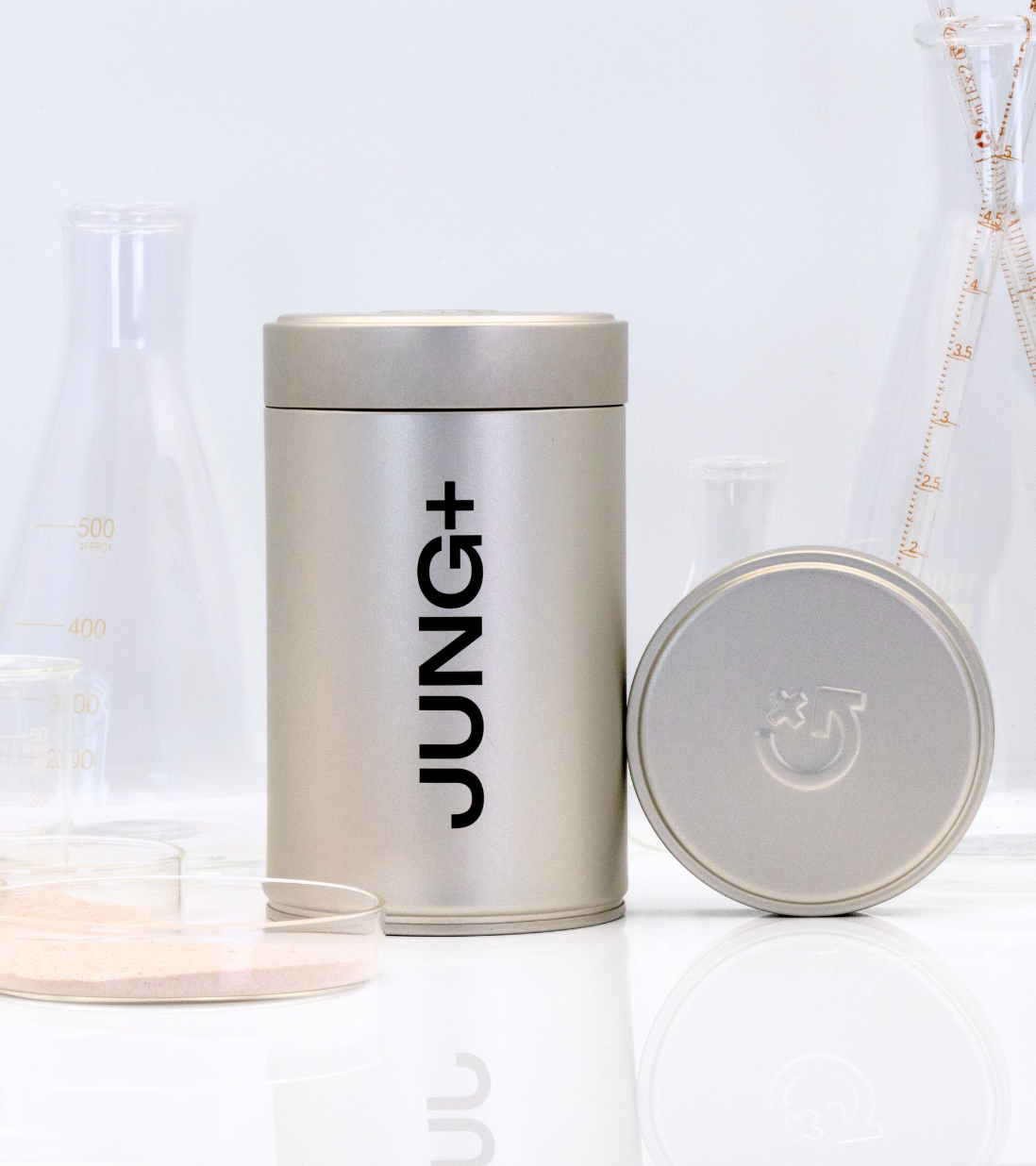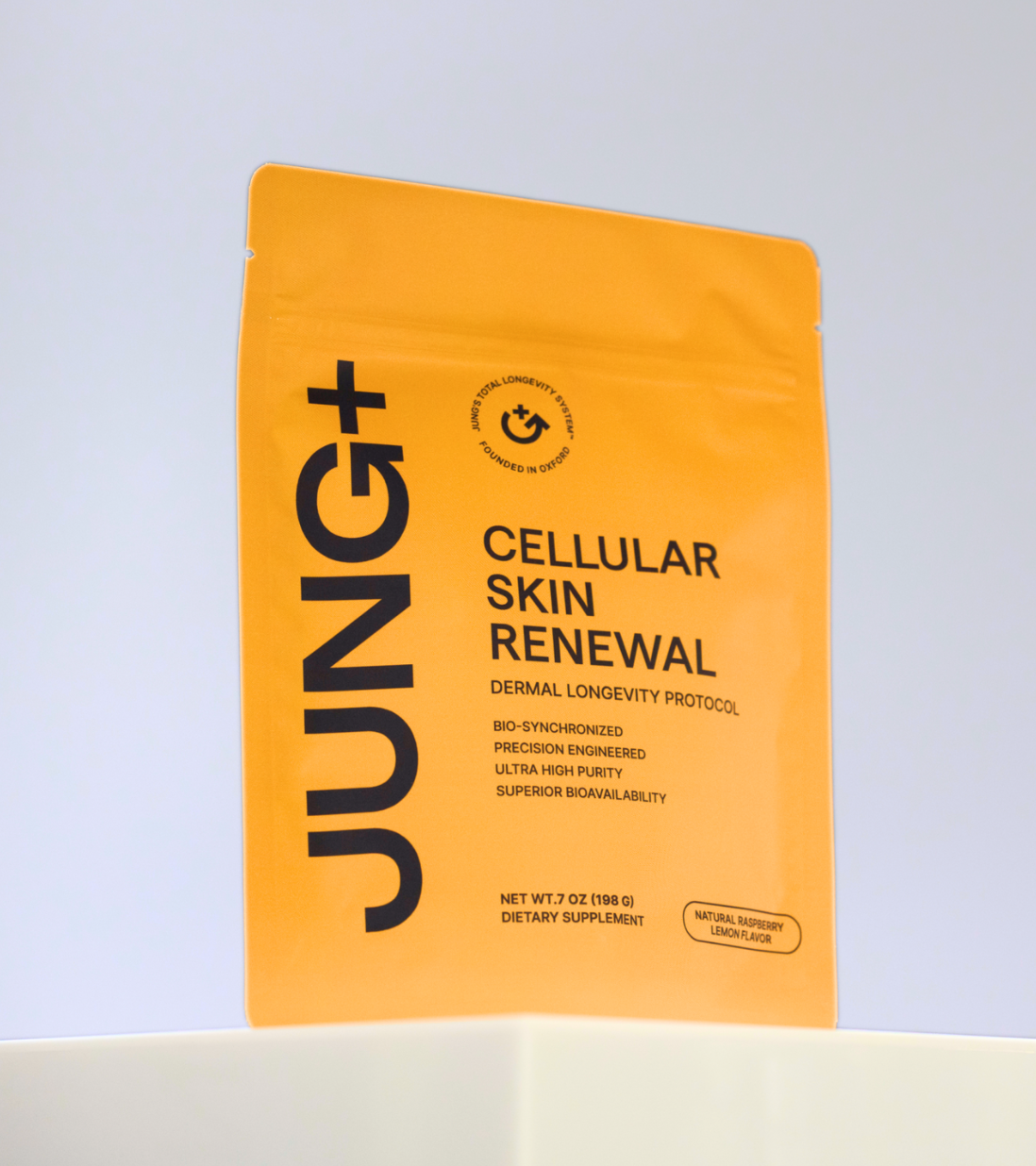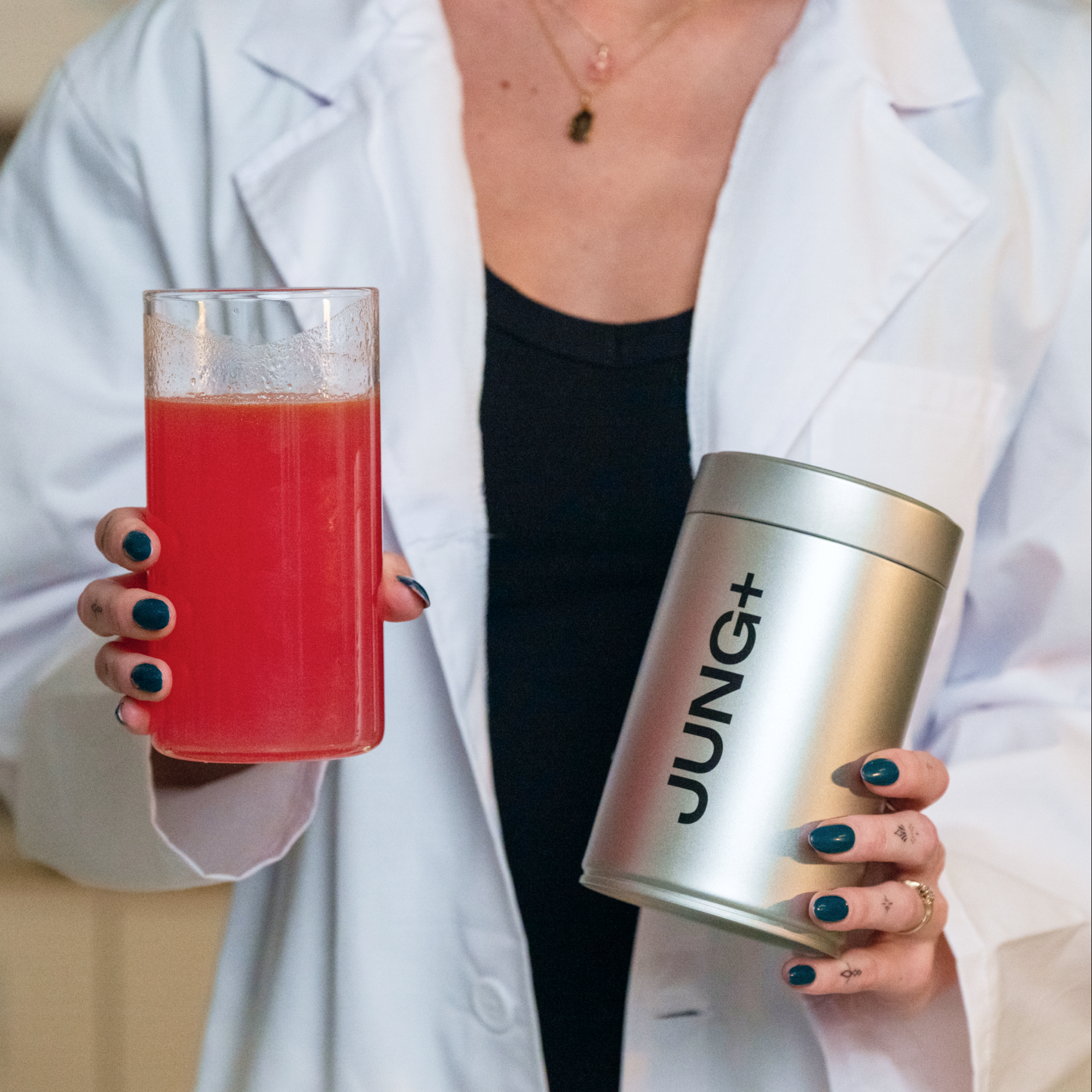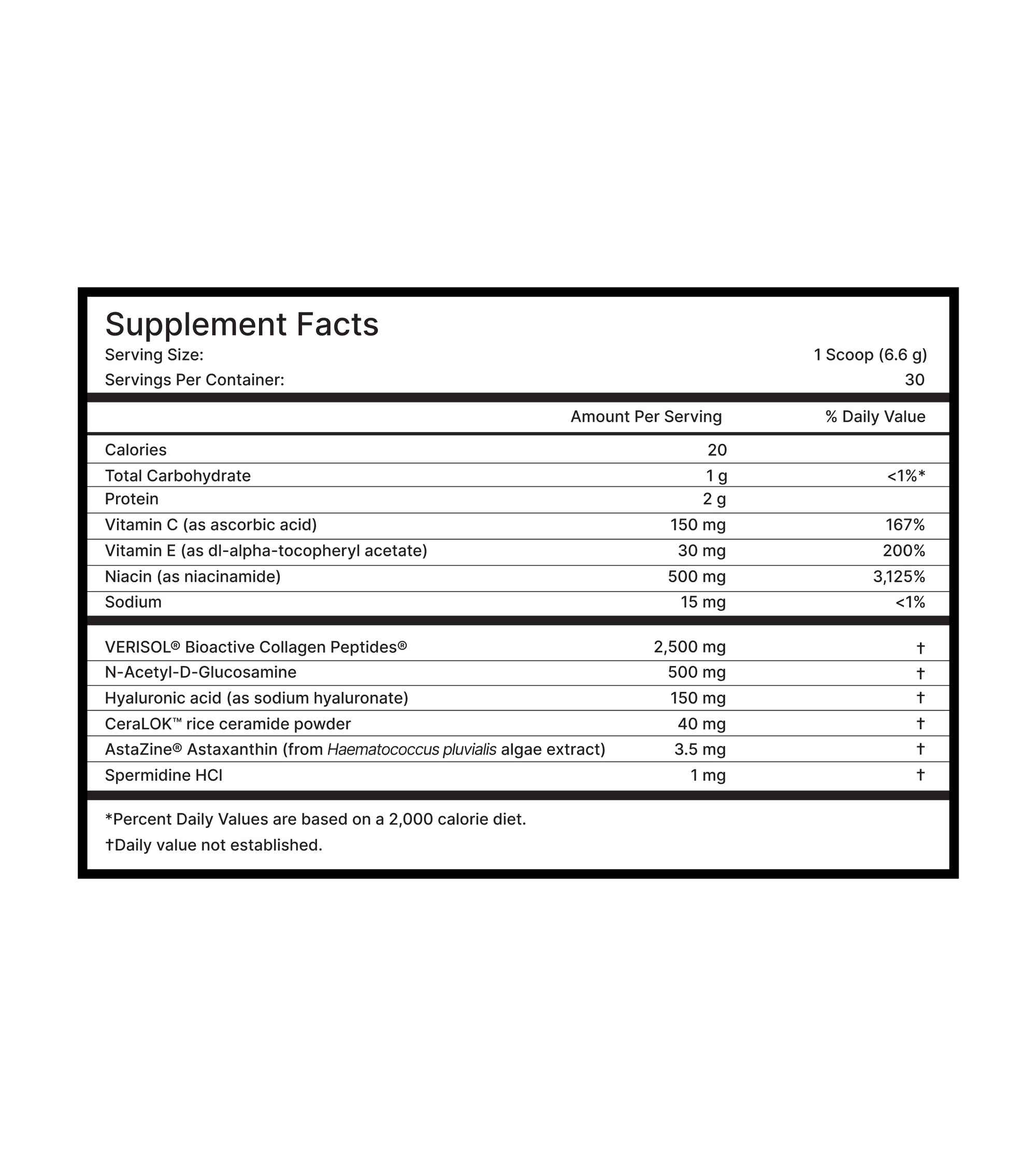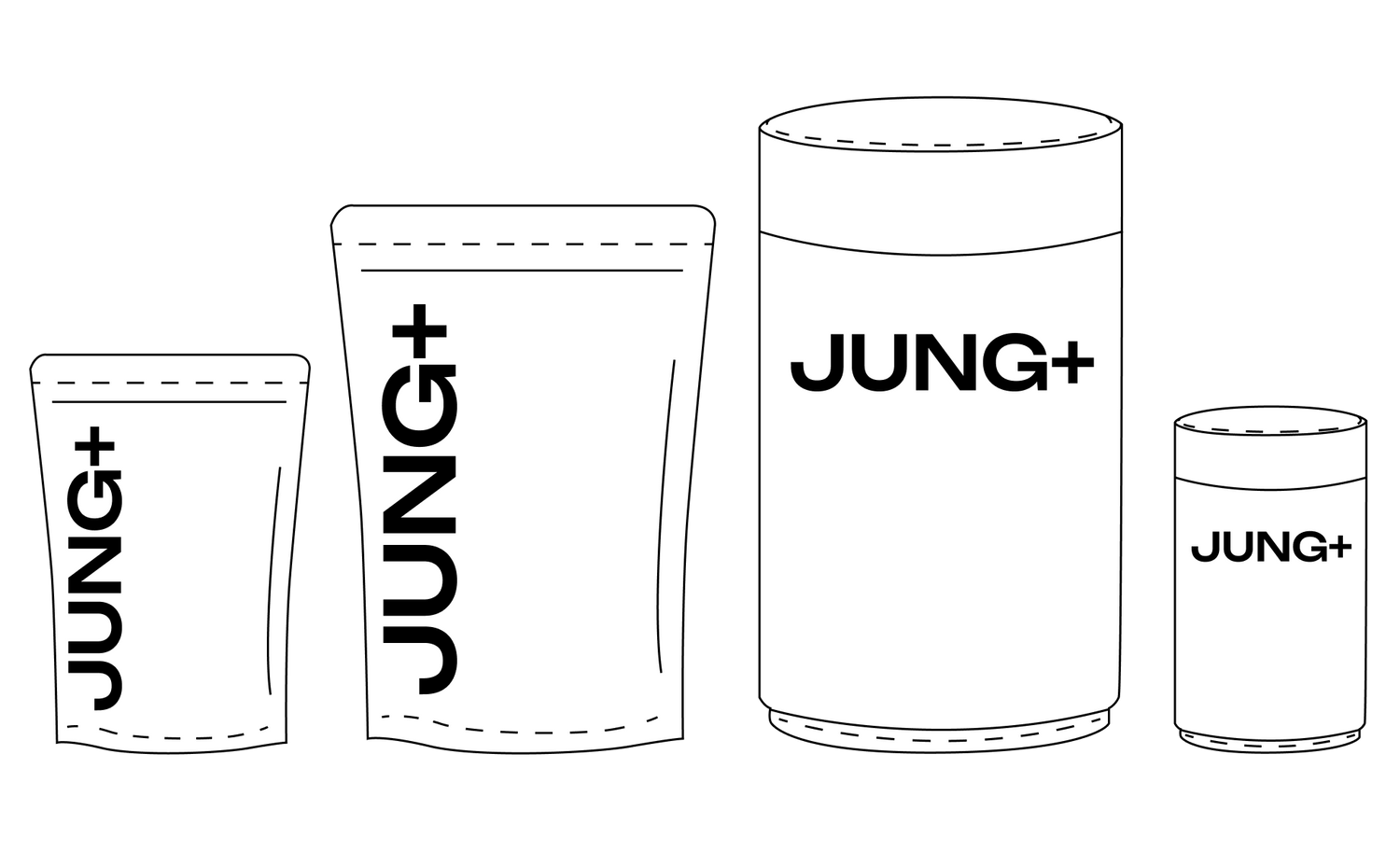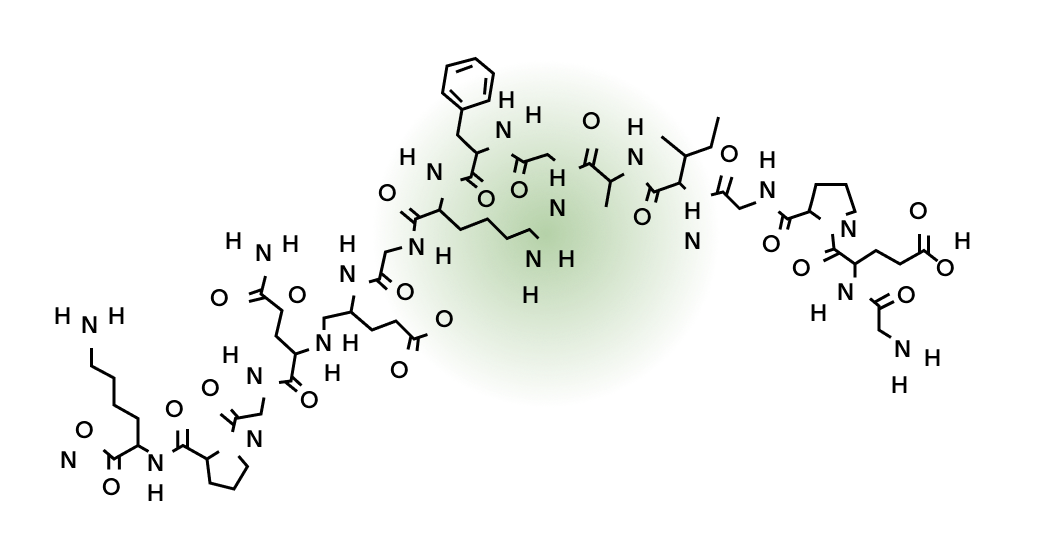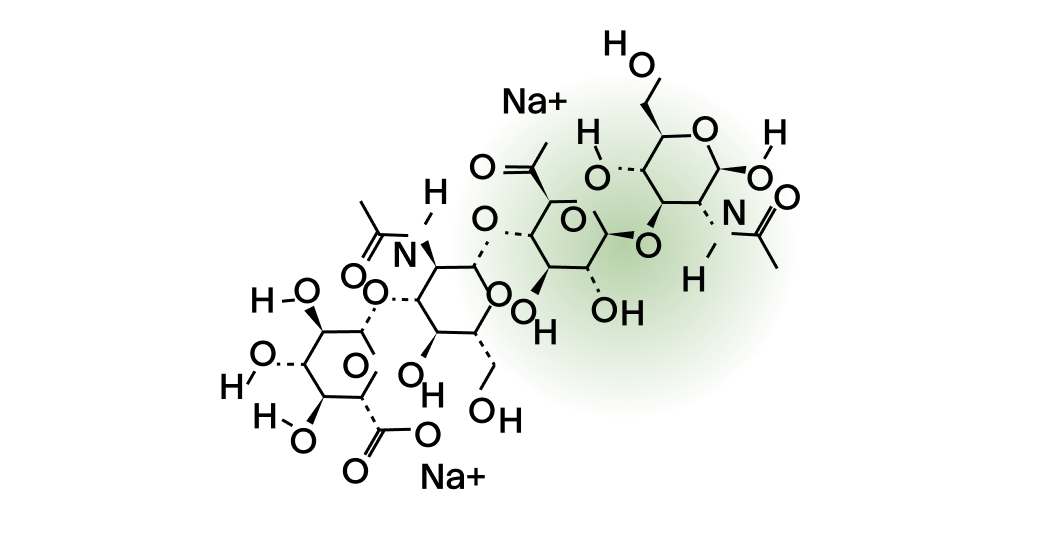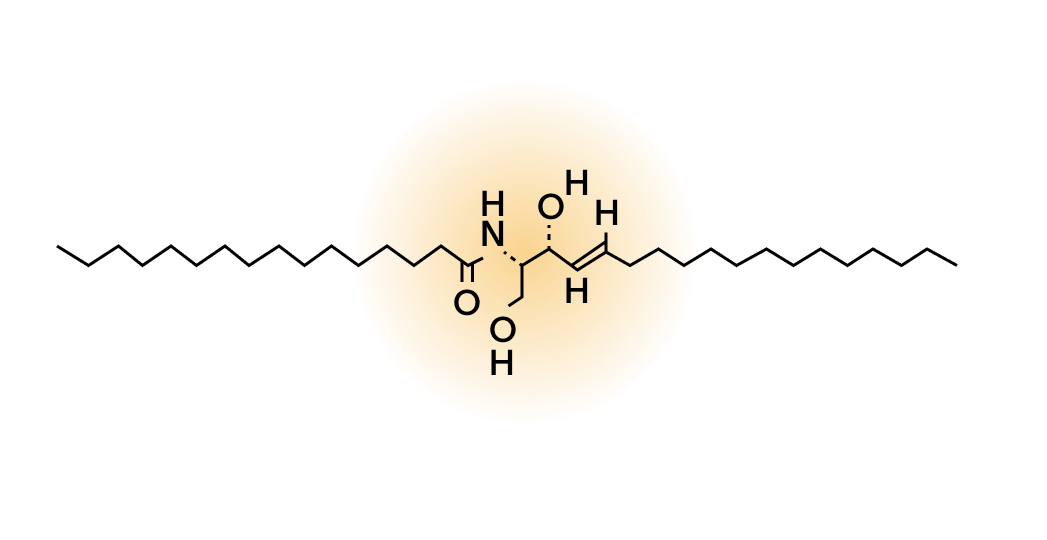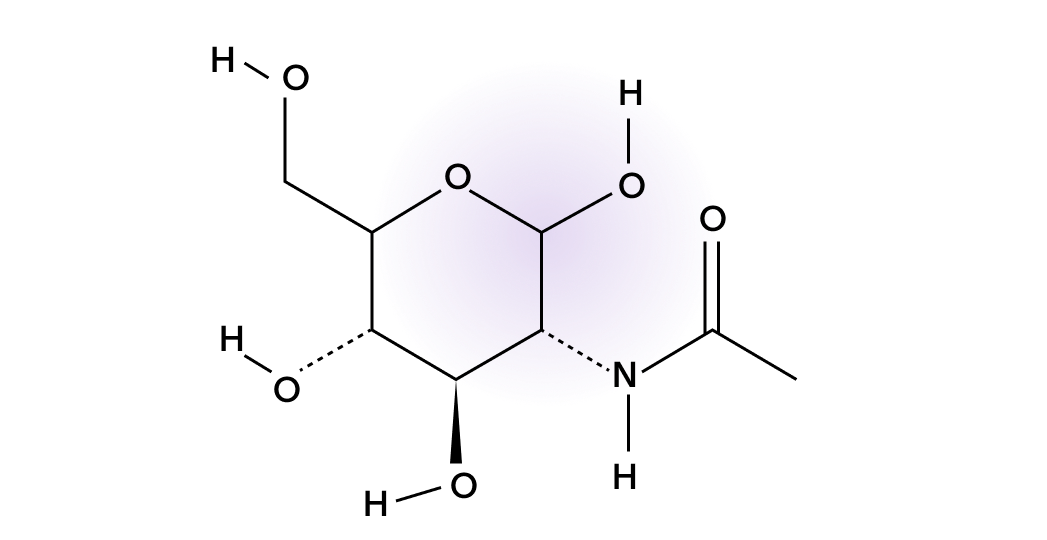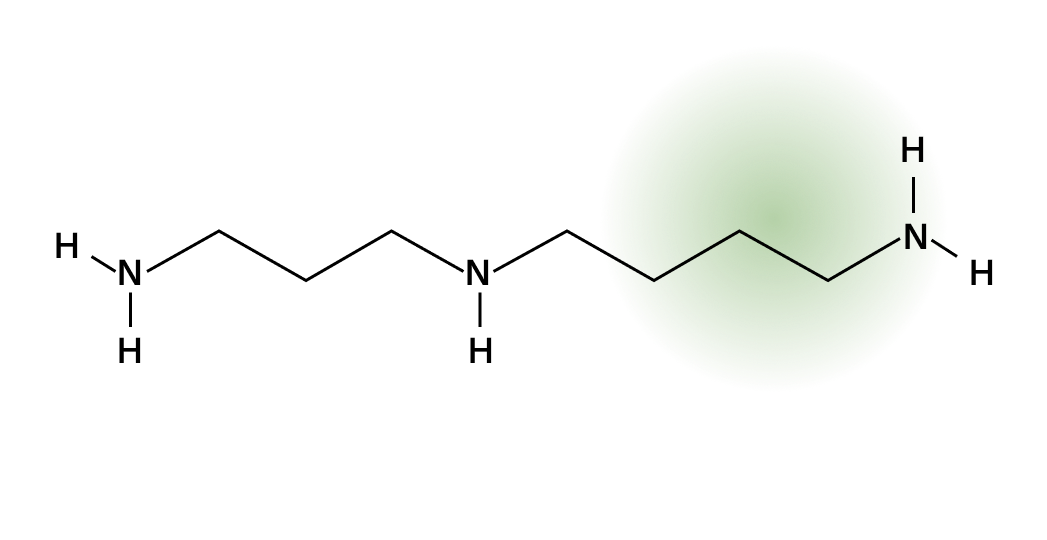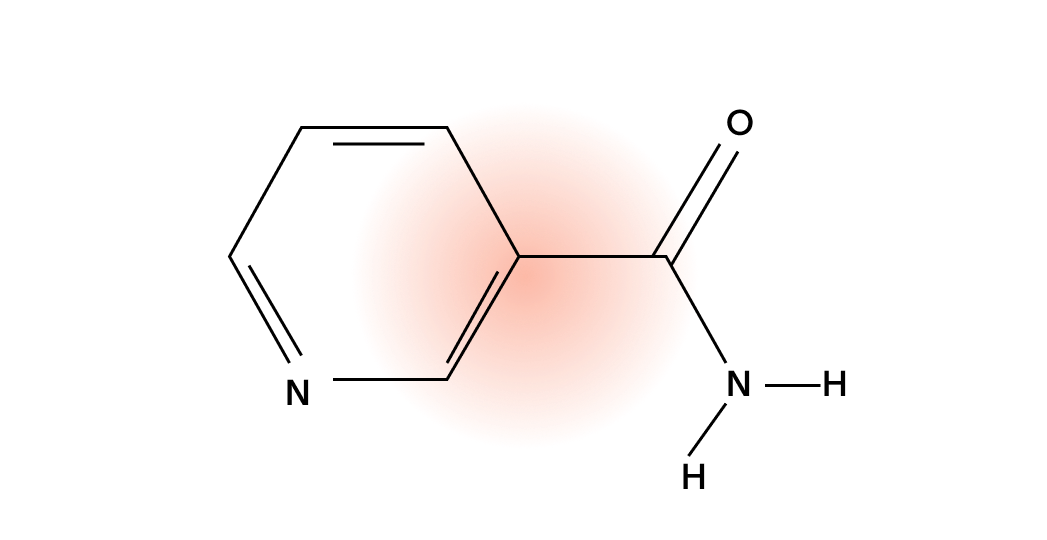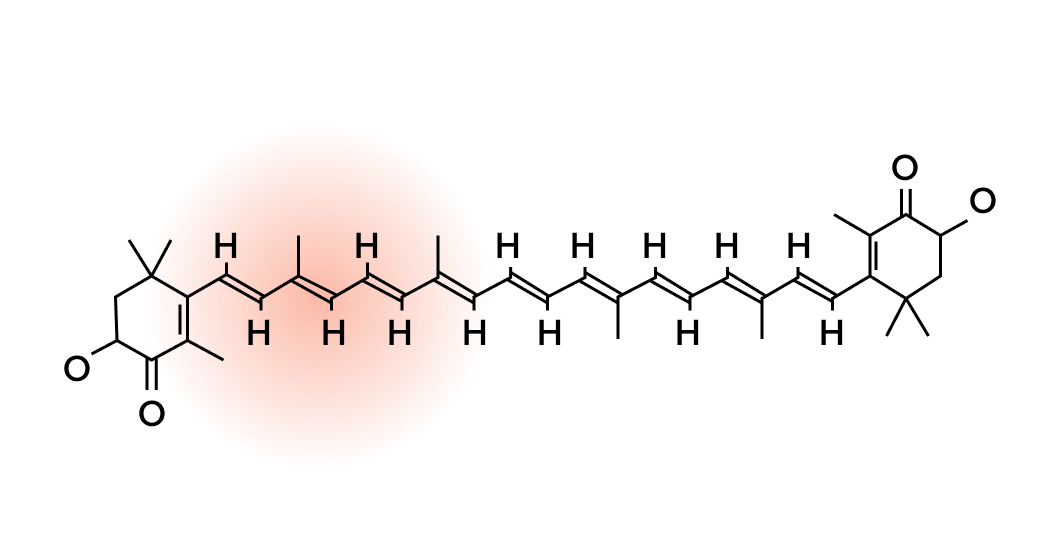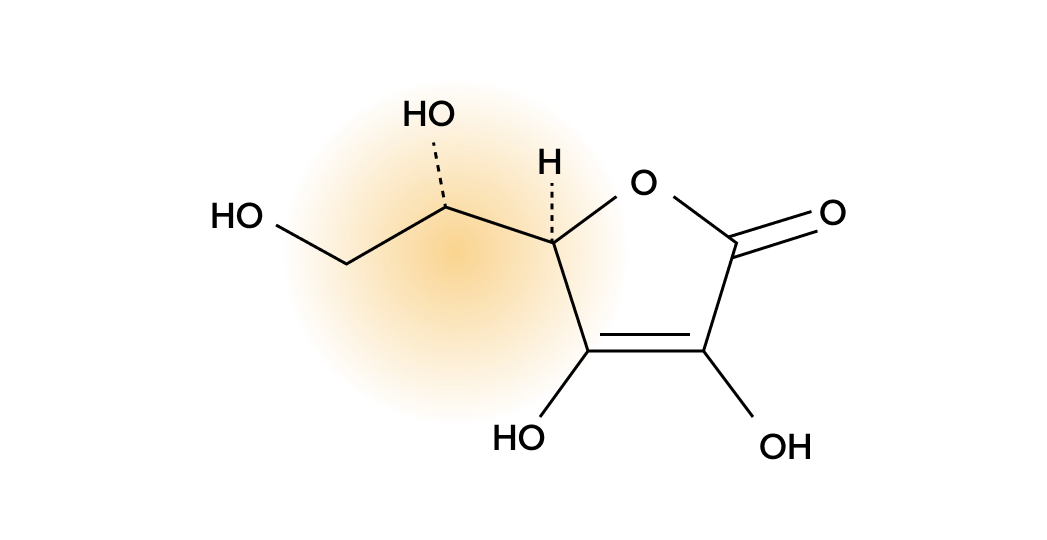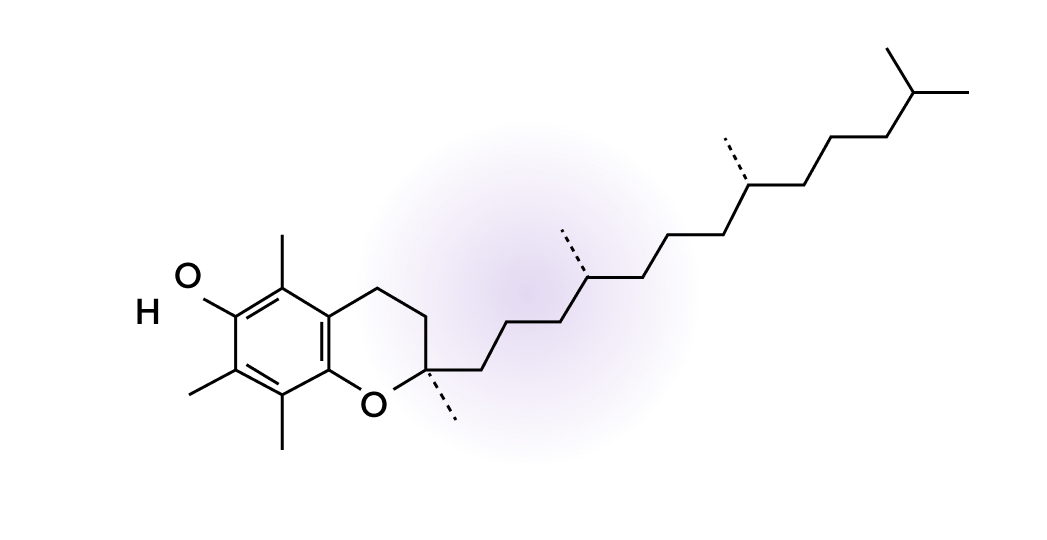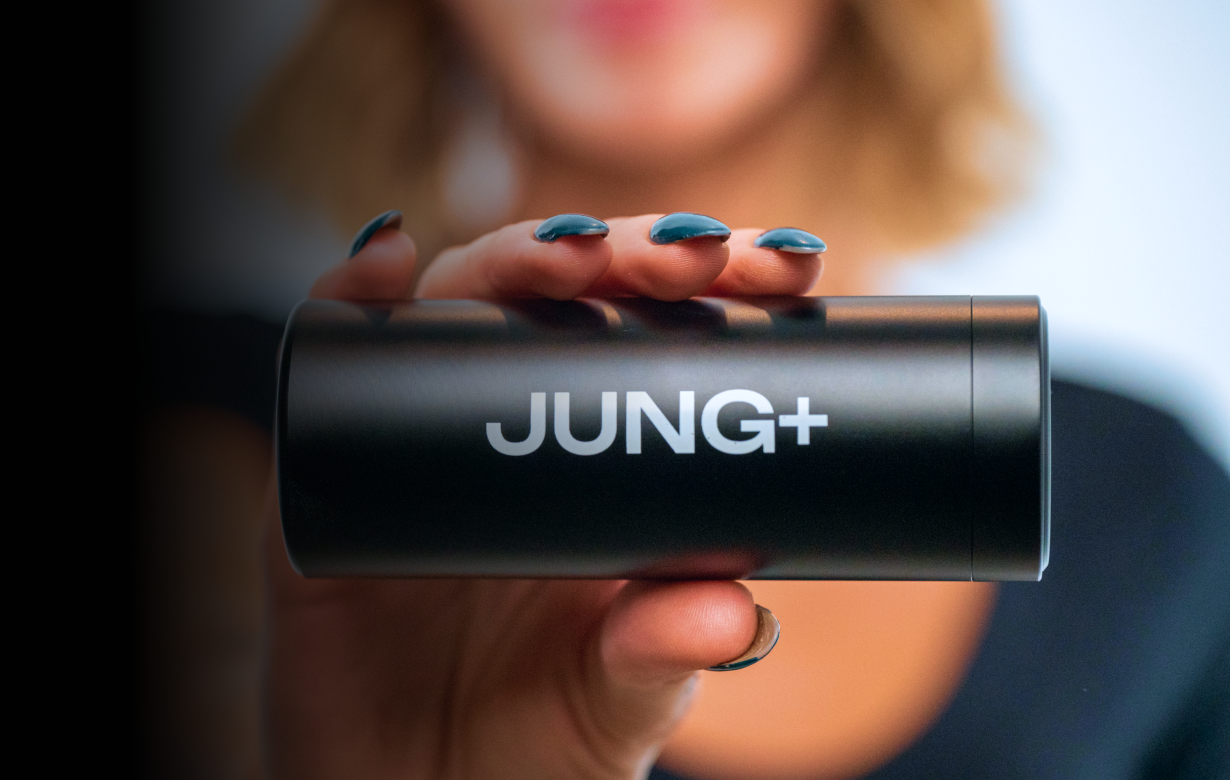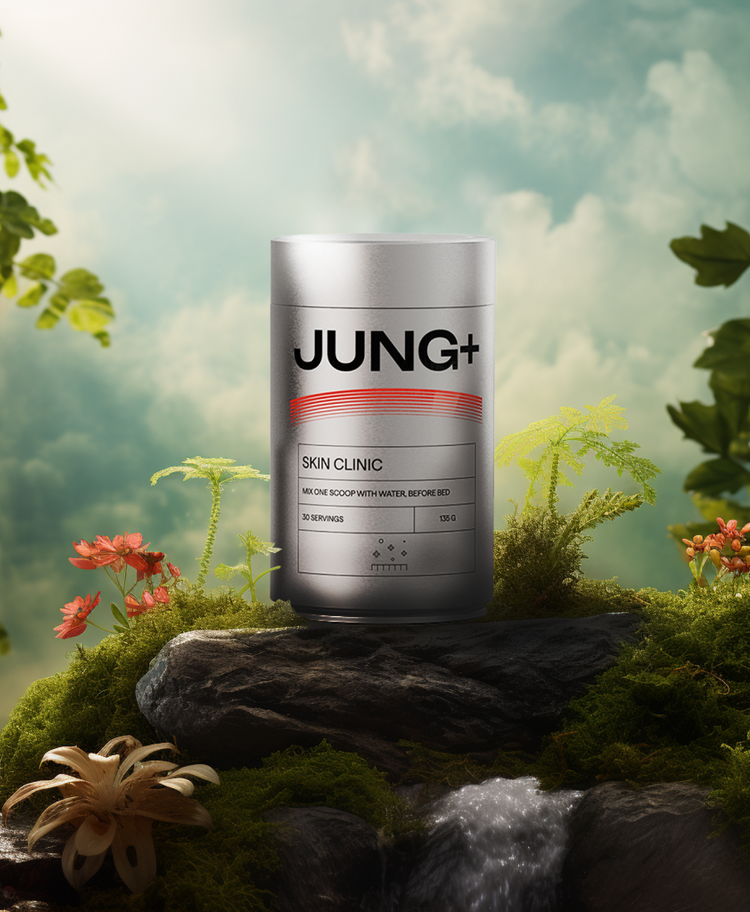Cellular Skin Renewal 2024
Cellular Skin Renewal transcends the limitations of topical creams or serums, standing alone as the only skin supplement leveraging the cutting-edge advancements of longevity science to combat every major aspect of biological skin aging from the inside out. Precision engineered using frontline longevity science, it's a complete protocol that targets the multifaceted drivers of skin aging, helping to bolster cells and capillaries, clear our senescent zombie cells, stimulate NAD+, collagen and hyaluronic acid production, neutralize aging accelerators like Advanced Glycation End Products (AGEs) from eating sugar, and more. This groundbreaking formula serves as a personal longevity clinician, designed to reduce wrinkles, improve elasticity, and balance skin tone and texture by correcting the things that cause them. With its powerful blend of precursors, antioxidants, and longevity molecules, Cellular Skin Renewal goes beyond skincare —it's a testament to the pinnacle of longevity science and skin rejuvenation.
Couldn't load pickup availability
As seen in
Complete Cellular Skin Revival, One Scoop a Day
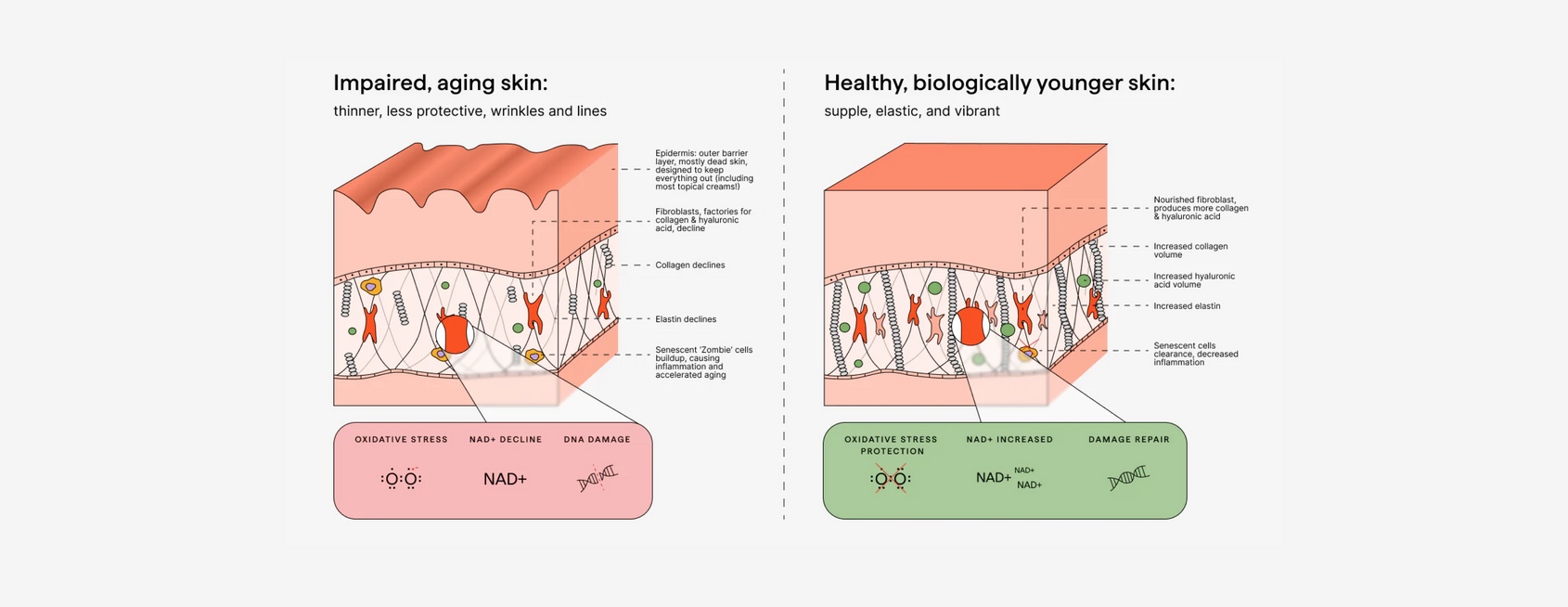
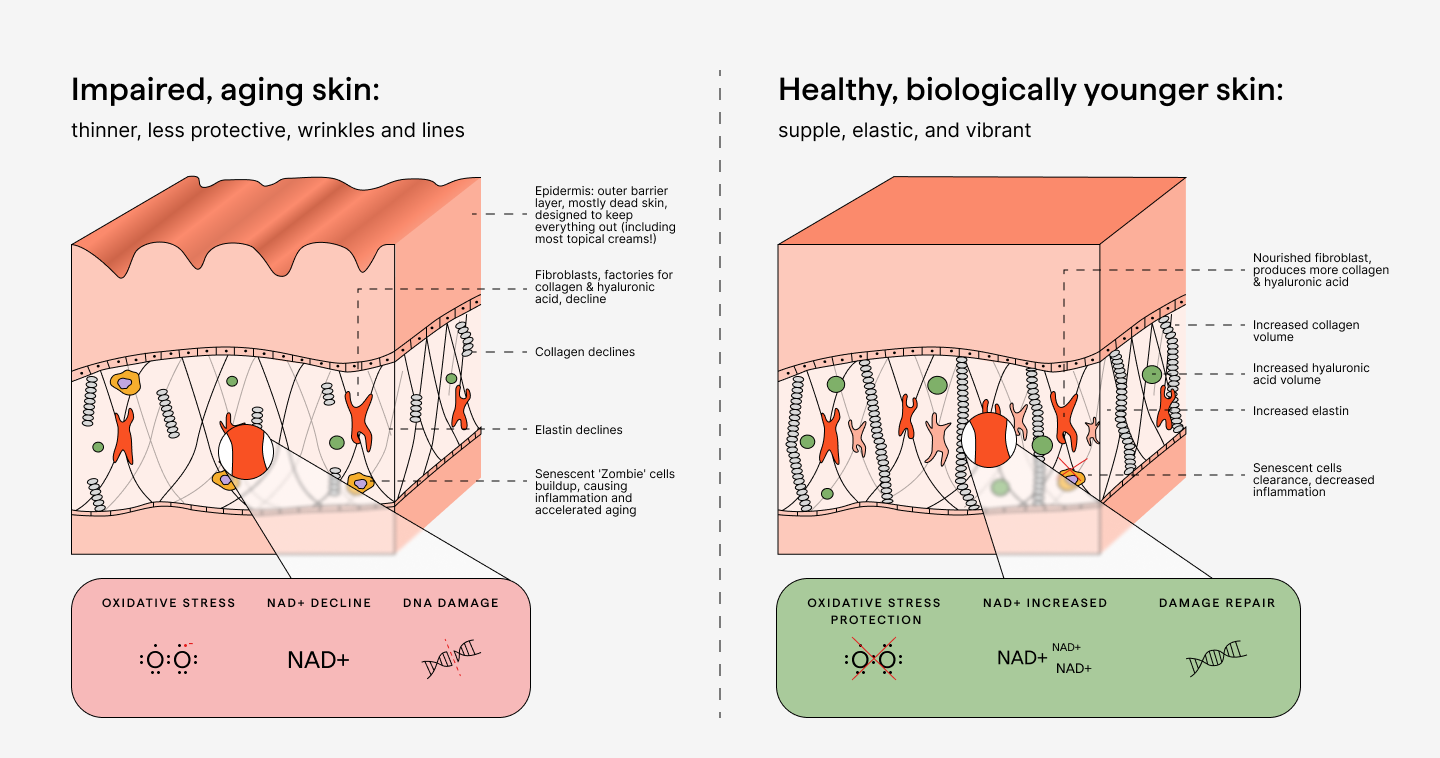
Collapsible content
Discover the unique benefits that set us apart.
Clinically Proven Collagen Renewal
Visibly Reduce Wrinkles, Cellulite, and Sagging
Clinically Proven Collagen Renewal
Visibly Reduce Wrinkles, Cellulite, and Sagging
Radical Hydration from Within
Restore Lasting Hydration—Beyond Topical Creams
Radical Hydration from Within
Restore Lasting Hydration—Beyond Topical Creams
Boost NAD+ for Energized, Youthful Skin
Recharge Skin Cells From Within with Longevity Science
Boost NAD+ for Energized, Youthful Skin
Recharge Skin Cells From Within with Longevity Science
Clear Aging 'Zombie' Cells
Clear Senescent Cells for Smoother, Younger-Looking Skin
Clear Aging 'Zombie' Cells
Clear Senescent Cells for Smoother, Younger-Looking Skin
Boost Antioxidant Defense
A barrier for the barrier organ of your body
Boost Antioxidant Defense
A barrier for the barrier organ of your body
Internal Sun Protection & Antioxidant Defense
Defend from UV Damage with Nature’s Most Powerful Antioxidants
Internal Sun Protection & Antioxidant Defense
Defend from UV Damage with Nature’s Most Powerful Antioxidants
Feeds Your Fibroblasts
The Architects of Skin Youth
Feeds Your Fibroblasts
The Architects of Skin Youth
Restore Beneficial Bacteria
For a Healthier Skin Microbiome
Restore Beneficial Bacteria
For a Healthier Skin Microbiome
Even Skin Tone & Reduce Dark Spots
Brighten your complexion and visibly fade age spots
Even Skin Tone & Reduce Dark Spots
Brighten your complexion and visibly fade age spots
Fight Sugar-Triggered Wrinkles
Slow Slycation to Visibly Protect Skin Elasticity and Smoothness
Fight Sugar-Triggered Wrinkles
Slow Slycation to Visibly Protect Skin Elasticity and Smoothness
How to use
Collapsible content
Collagen Peptides (VERISOL®)
2,500 mg
Collagen Peptides (VERISOL®)
2,500 mg
Hyaluronic acid
150 mg
Hyaluronic acid
150 mg
Ceramides (CeraLOK®)
40 mg
Ceramides (CeraLOK®)
40 mg
N-acetyl-D-glucosamine - NAG
500 mg
N-acetyl-D-glucosamine - NAG
500 mg
Spermidine
1 mg
Spermidine
1 mg
Niacinamide (NAD+ Booster)
500 mg
Niacinamide (NAD+ Booster)
500 mg
Astaxanthin (AstaZine®)
3.5 mg
Astaxanthin (AstaZine®)
3.5 mg
Vitamin C
150 mg
Vitamin C
150 mg
Vitamin E
30 mg
Vitamin E
30 mg
Skin is one of the most important and complex organs, essential for human longevity. With the frontline of longevity science, we are finally able to address its various mechanisms of deterioration, and create a portfolio approach to truly intervene and even reverse aspects of skin aging.
Francois Xavier Pellay, PhD. Longevity molecule hunter, and world renowned skin longevity expert.
Founded in Oxford - we’ve done our homework
At Jung+, we're on a crusade to liberate human longevity, translating the latest scientific advancements in aging research into products and technologies that can slow aging and extend healthy lifespan
Our scientistsGMP certified
Manufactured in facilities that follow Good Manufacturing Practices (GMP), ensuring the highest quality and purity.
Scientist Approved
Formulated by experts and rigorously evaluated by scientists to ensure effectiveness and safety.
Clinical-Grade Dosage
Contains the precise dosages used in clinical studies, ensuring you receive the optimal amount for maximum benefit.
Made in the USA
Proudly produced in the USA, ensuring adherence to the highest standards of quality and safety.
Real results from real people
Meet our JUNG+ community
FAQ’s
-
How should I take Cellular Skin Renewal?
-
Are there any known side effects?
-
How long does it take to see results with Cellular Skin Renewal?
-
Does Cellular Skin Renewal replace a healthy skincare routine?
-
Can Cellular Skin Renewal cure skin conditions or diseases?
-
Can I take Cellular Skin Renewal if I'm already taking other skincare supplements?
-
What else can I do to enhance the effectiveness of Cellular Skin Renewal.
Scientific studies
-
Reduction in Skin Wrinkles & Fine Lines with Verisol Collagen Peptides
-
Oral versus topical Vitamin C for skin health
-
Ingestion of hydrolyzed collagen for 90 days is effective in reducing skin aging.
-
Verisol Collagen Peptides Improve Skin Elasticity: A Double-Blind, Placebo-Controlled Study"
-
Ceramides supplementation improves skin aging by supporting the skin's natural barrier function.
-
Cosmeceuticals containing vitamins C, E, and niacinamide are increasingly important in skin care.
-
Long-term prophylactic astaxanthin supplementation may inhibit age-related skin deterioration and maintain skin conditions associated with environmentally induced damage
-
N-acetyl-D-glucosamine is a hyaluronic acid precursor accelerating wound healing, improving skin hydration, and decreasing wrinkles.
-
Recovery of Human Dermal Structure and Barrier Function Induced by Spermidine through the Skin Microbiome.
-
The evolving role of the NAD+/nicotinamide metabolome in skin homeostasis, cellular bioenergetics, and aging
-
Induction of autophagy by spermidine promotes longevity
-
Oral intake of VERISOL® reduces skin wrinkles and increases dermal matrix synthesis
-
The role of vitamin E in normal and damaged skin.
-
Systematic Review on the Effects of Astaxanthin on Human Skin Aging
-
Improvement of Hair Thickness with Verisol Collagen Peptides
All References
-
Bukhari SNA, Roswandi NL, Waqas M, Habib H, Hussain F, Khan S, et al. Hyaluronic acid, a promising skin rejuvenating biomedicine: A review of recent updates and pre-clinical and clinical investigations on cosmetic and nutricosmetic effects. International journal of biological macromolecules. 2018;120:1682-95.
-
Na Takuathung M, Klinjan P, Sakuludomkan W, Dukaew N, Inpan R, Kongta R, et al. Efficacy and Safety of the Genistein Nutraceutical Product Containing Vitamin E, Vitamin B3, and Ceramide on Skin Health in Postmenopausal Women: A Randomized, Double-Blind, Placebo-Controlled Clinical Trial. Journal of Clinical Medicine. 2023;12(4):1326.

